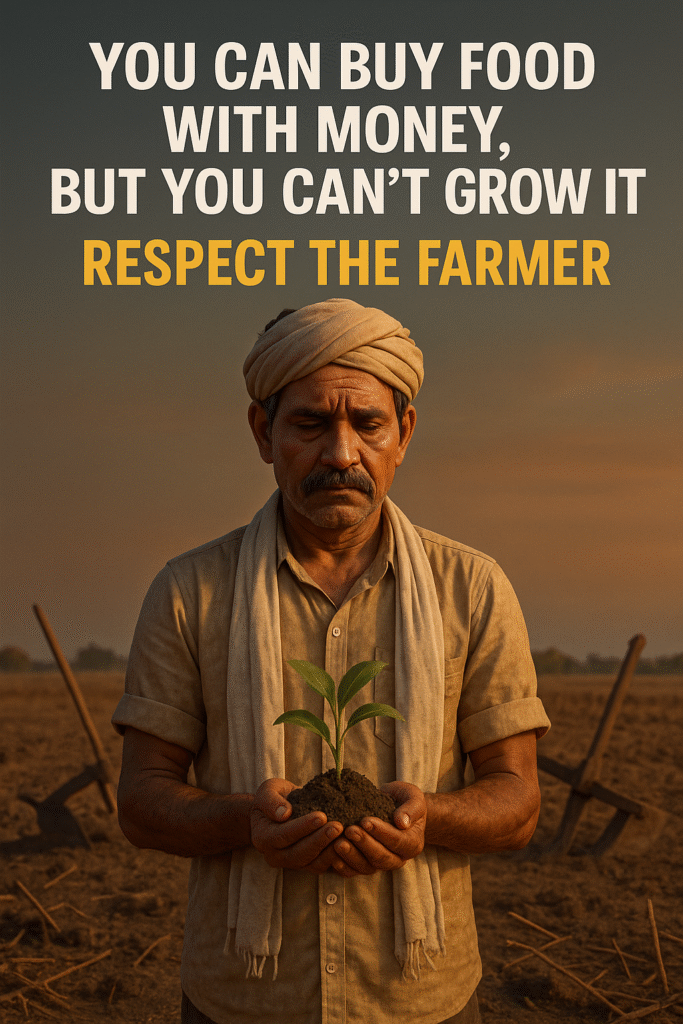
Introduction: A New Era of Farming Leadership
In every corner of the world, from the vast wheat fields of Canada to the rice terraces of the Philippines, from African cocoa farms to European vineyards — a silent revolution is growing. This revolution is not led by politicians or industrialists, but by farmers — the true leaders of tomorrow.
Farming, once seen as a humble profession, is now emerging as the backbone of sustainability, innovation, and survival. In a time when climate change, food insecurity, and mental stress dominate global headlines, the world is waking up to a profound truth: our future leaders are those who work with the Earth, not against it.
- The Farmer: A Leader Beyond Titles
Leadership is not about speeches; it’s about creation, resilience, and vision. Farmers have always been silent leaders — creating life, sustaining communities, and guiding humanity toward survival.
When others chase short-term profit, farmers chase growth — not just in crops, but in life. They teach patience, humility, and balance. A seed does not grow overnight, and neither does true success. Farmers live this truth daily.
In this way, farming is not just an occupation — it’s leadership training at its purest form.
- Why Farming Matters More Than Ever
Food Security
By 2050, the global population will exceed 9 billion. Without farming innovation, there will not be enough food to sustain life. Farmers are the first line of defense against global hunger.
Environmental Stability
Agriculture contributes to environmental healing when done responsibly — through regenerative practices, organic cultivation, and smart irrigation. The soil captures carbon, trees restore oxygen, and farmers maintain the planet’s lungs.
Economic Sustainability
A thriving agricultural system creates employment, reduces migration, and balances national economies. Every farm job sustains multiple lives beyond the field.
- Farming and Technology: The New Green Revolution
Farming is no longer about plows and oxen. It’s about AI-driven irrigation systems, drone surveillance, satellite weather mapping, and precision agriculture.
Countries like Japan and the Netherlands are leading examples — showing how technology can multiply output while preserving resources. Young innovators across Africa, India, and South America are turning farms into smart ecosystems.
From solar-powered greenhouses to blockchain-based food tracking, the fusion of farming and tech is shaping a global movement. The modern farmer is not just a grower — he is an engineer, economist, and environmentalist.
- Youth and the Return to Soil
The youth of the world face a crisis — stress, job insecurity, and digital overload. But a quiet shift is happening. Educated young people are leaving cities and returning to farming.
They’re building organic startups, eco-villages, and community-supported agriculture (CSA) networks. For them, farming is not regression — it’s evolution.
It offers balance — a connection between mind, body, and nature. Farming teaches that the value of life is not measured in bank balances but in the ability to nurture life.
- The Global Economy and the Farmer’s Role
Farming contributes nearly 4% of global GDP but supports over 27% of the world’s workforce. Yet, farmers remain undervalued.
In reality, no industry exists without agriculture. Technology, medicine, and even space exploration depend on food security. The global economy runs on soil, and the sooner the world recognizes this, the stronger our collective future will be.
Governments must promote fair pricing, crop insurance, and global trade equality — ensuring that the hands feeding the world never go hungry themselves.
- Mental Health and the Farmer’s Strength
Farmers face harsh realities — climate unpredictability, debts, and isolation. But their resilience is unmatched.
Unlike corporate workers who burn out chasing deadlines, farmers learn to synchronize with nature’s rhythm. Every sunrise is a new chance, every failure a lesson, every harvest a celebration.
The world can learn mental wellness from farmers — how to stay calm in uncertainty and hopeful in hardship.
- Farming as a Path to Global Peace
Food has no religion, soil has no borders, and rain belongs to all. Farming unites humanity in its purest form.
In regions divided by politics, shared agricultural projects have restored trust and cooperation. When countries exchange seeds instead of weapons, humanity grows together.
Farming could become the foundation of global peace, where collaboration replaces competition, and the Earth becomes our shared home again.
- The Future: From Farmers to Visionaries
The farmer of the future will not just feed the world — they will lead it.
They will use data to predict climate, robots to plant crops, and satellites to monitor soil health. But most importantly, they will preserve the ancient wisdom of balance and patience — something no machine can replicate.
As we move toward 2050, the leaders who matter will not be those sitting in glass towers but those standing in open fields, with soil-stained hands and sunlit vision.
Conclusion: The Soil Is Calling
The world needs to redefine success. It is not about power or possessions, but about purpose.
Farmers carry that purpose. They lead with heart, not ego. They work silently, but their impact echoes globally.
If humanity is to survive — and thrive — it must follow the footsteps of those who listen to the Earth. Because the future doesn’t grow in offices or factories.
It grows in the soil.
✍️Farming Writers
Love farming Love farmers
Read A Next Post 👇
Leave a ReplyShare your thoughts: We’d love to hear your farming ideas or experiences!